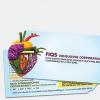Since you've said not covid----see the link below.........norovirus can be transmitted through food, and it won't be the only one
https://www.cdc.gov/...orne-germs.html
to answer you're question, yes, there are 1000's of possible air borne contaminates that can reduce shelf life
https://ucfoodsafety...files/26497.pdf
Filtration of air entering the food processing area reduces the number of airborne contaminants. If processed foods will not receive a heat treatment or will have few barriers to microbial growth, use of “absolute” (high efficiency) air filters can virtually eliminate microbial contamination. If an air conditioning system is present, the system must be maintained properly so that condensate drains freely and does not contaminate the product. Food processing personnel must use hygienic practices and must be barred from moving from areas containing raw materials to areas containing finished products. GMPs, sanitation, and hygiene are necessary prerequisites for implementing an effective Hazard Analysis Critical Control Point (HACCP) system, which enables the highest level of food safety assurance possible. HACCP is a systematic approach to the identification, evaluation, and control of food safety hazards, from raw material production and procurement to distribution and consumption of the finished product (NACMCF, 1997). HACCP is based on seven principles: (1) conduct a hazard analysis, (2) determine the critical control points, (3) establish critical limits, (4) establish monitoring procedures, (5) establish corrective actions, (6) establish verification procedures, and (7) establish recordkeeping and documentation procedures
https://cleanair.cam...ntaminants-can/
https://www.research..._foods_A_review
https://meridian.all...747-30_1_13.pdf
https://www.moldbact...use-facilities/
https://encyclopedia.pub/4423
the web is awash will 100's of citable research papers for you to reference
Edited by Scampi, 30 June 2021 - 06:04 PM.



















